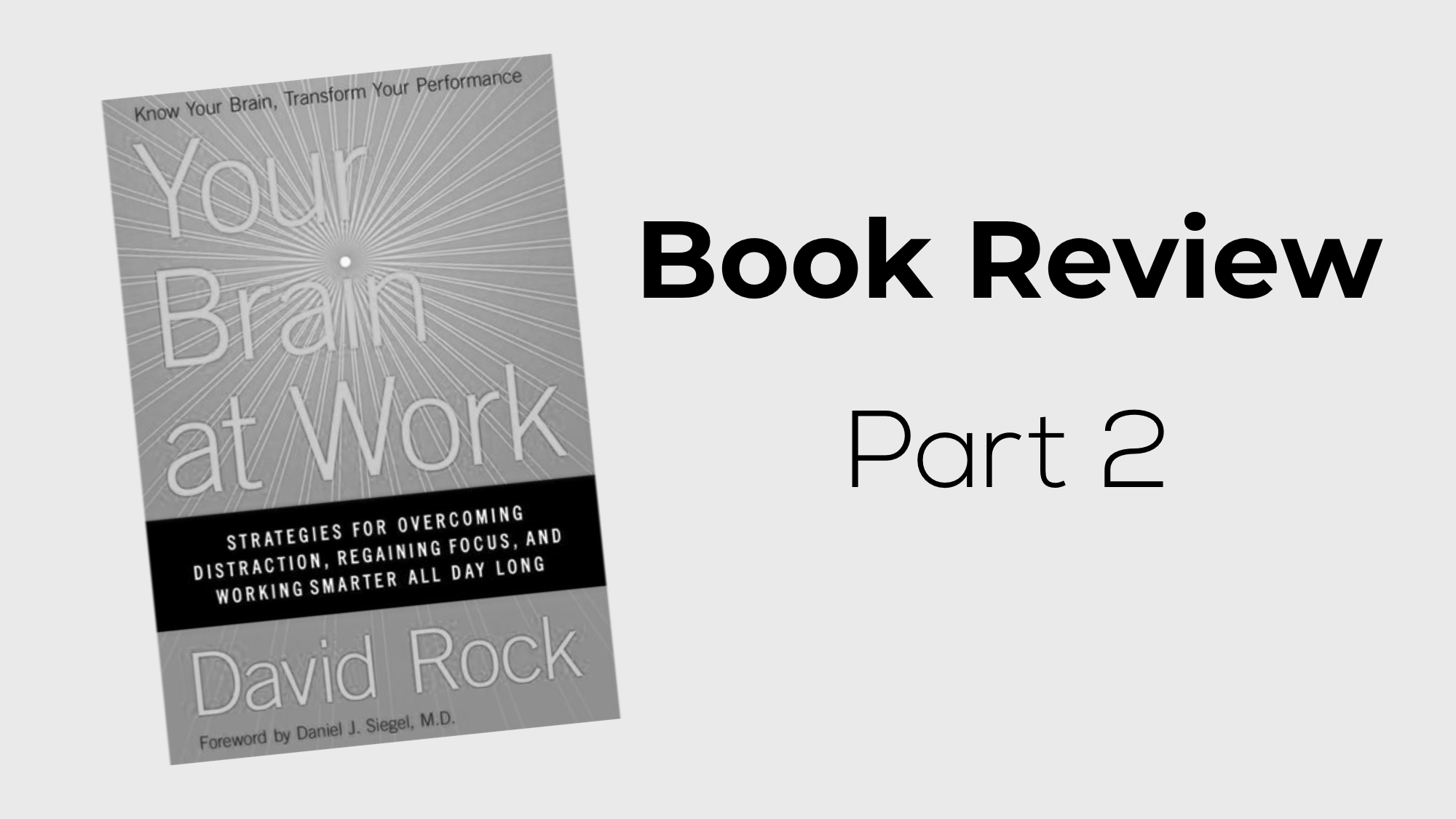Your Brain at Work, by David Rock, is one of my favorite books I’ve read this year. This book shows us so many interesting things our brains do (I had no idea!), and suggests great ways to deal with them.
This book review comes in 2 parts; the first part focused on multitasking, stress, threats, and rewards. Here’s my second chunk of learning:
Our expectations change how we perceive reality.
Whether we have super-high expectations or super-low ones, meeting them gives us a little boost, and when something exceeds our expectations we get a big boost. When our expectations aren’t met, though, our brain gives us a dose of “what a big bummer!”
So, if you set your daily goal to 15K steps and you get 12K, you get the “bummer” effect, but if you set it to 10K steps and get 12K, you get the “OMG, you’re fantastic!” response. And the lovely dopamine hit you get from the “you’re fantastic!” response can help you reinforce your habit much better than the “bummer” effect.
We categorize everyone as “friend” or “foe,” and default to “foe.”
Because our brains categorize people as foes as a default (due to survival instinct hangover), it’s important to create connections with people to move them to the “friend” category.
The more people connect at a personal level, the easier it is for the brain to perceive them as “friends,” and the easier it is to collaborate with them.
Book I've learned the most from this year? 'Your Brain at Work,' by David Rock #mindfulness #neuroleadership Click To TweetFairness and status drive a lot of our behavior.
Our brains are wired to determine whether something is fair or not and what someone’s status is. Both feelings of unfairness and drop in status show up as threats in the brain. Authentic, positive feedback helps us feel better, status-wise, and openness and transparency help people feel that things are fair.
Receiving feedback often makes people feel threatened.
And even when the person giving the feedback views it as “constructive,” the fact that feedback typically focuses on a problem gets people’s brains stuck thinking about the problem rather than solutions. Asking someone for their insights can help them think more positively.
When you want to make lasting changes, you need a ton of reinforcement, especially when you’re starting out.
Making a big change requires your brain to create new pathways so you can do things differently. You need to pay attention to these new pathways, especially when you’re first making the change, in order for the change to stick or to build a new habit.
Knowing what your brain is doing can help you do everything better.
Mindfulness helps you manage yourself – by knowing when and how to approach certain tasks and understanding why you (and others) react to different inputs.
Have you read Your Brain at Work? Tell us what your biggest “aha” was below!

